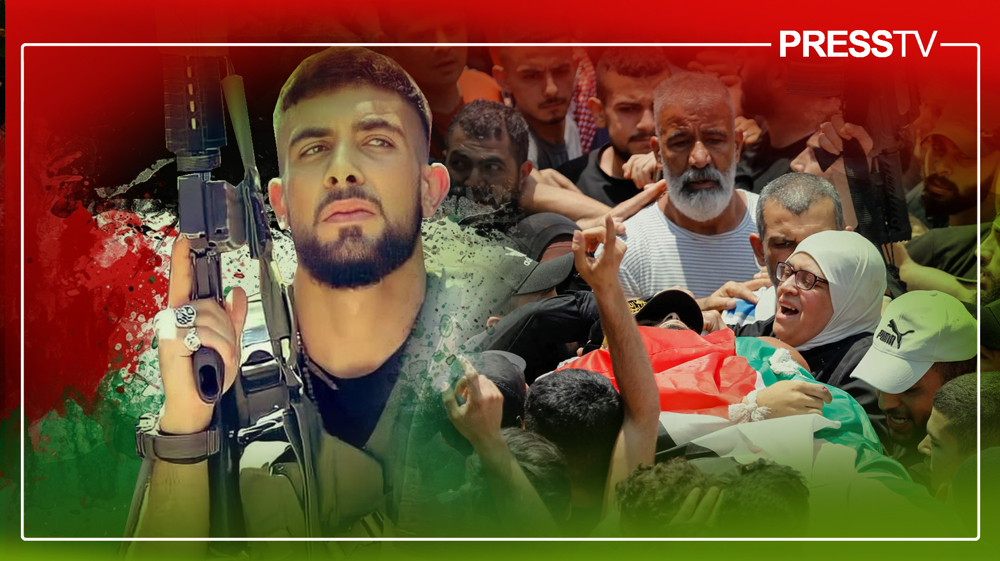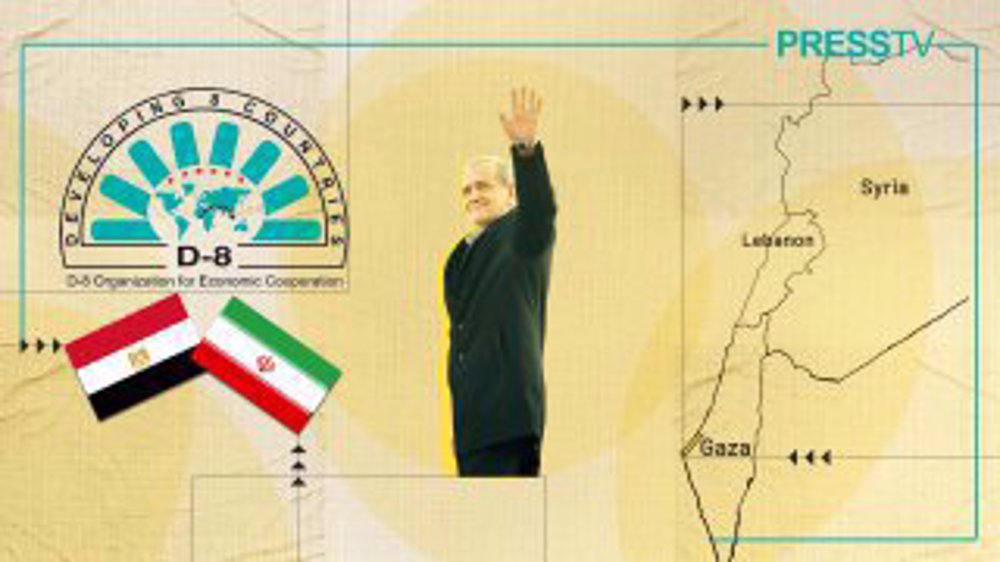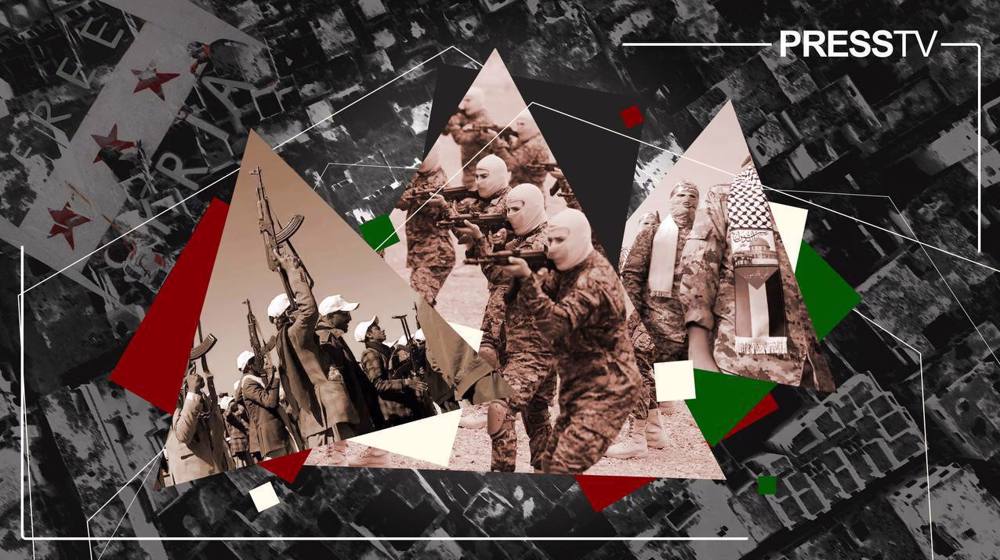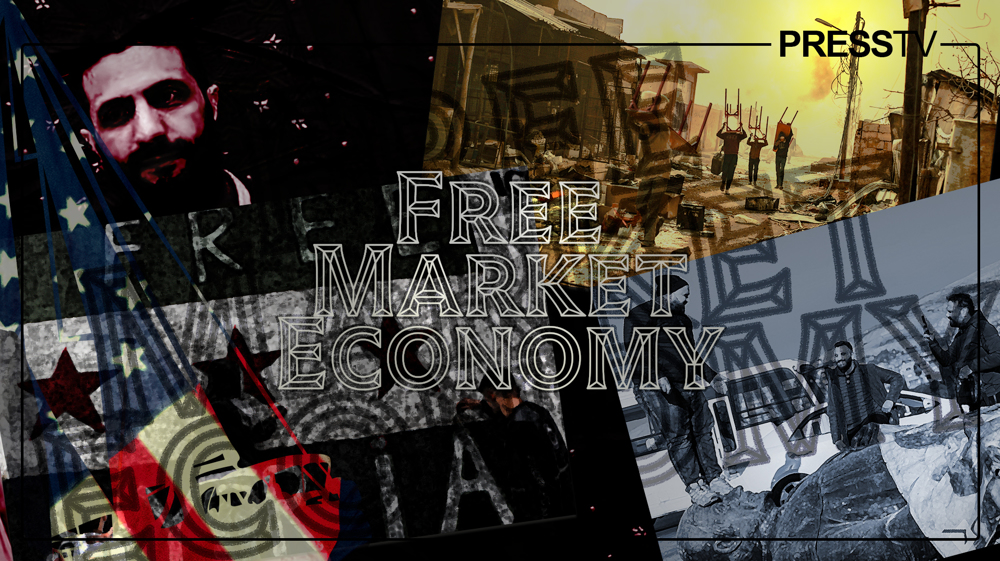Remembering 'Lion of Nablus' Ibrahim al-Nabulsi a year after martyrdom
By Ivan Kesic
August 9 marked the first anniversary of the martyrdom of Ibrahim al-Nabulsi, the Palestinian resistance fighter who inspired a new generation of anti-Zionist resistance in the occupied West Bank, earning the sobriquet of the 'Lion of Nablus'.
Nabulsi was born in 2003 in Nablus, a small city in the occupied West Bank surrounded by illegal Israeli settlements, which has in recent years emerged as an important bastion of Palestinian resistance against the Israeli apartheid.
His adolescent years were marked by the Second Intifada, a mass Palestinian uprising against the occupying regime when his city reeled under prolonged siege and attacks.
Growing up in a century-old family house on the city hill, he watched for years how his birthplace was frequently bombed and razed by the Israeli regime fighter jets.
The development of Nabulsi's worldview was also influenced by the harrowing experience of his father, a former prisoner in Israeli jails, as well as his classmates, neighbors and others who suffered under the illegal Israeli occupation in different ways.
Every time the occupying forces entered Nablus, as a schoolboy, Nabulsi would participate in the resistance exercises together with his older brother, throwing stones at Israeli military vehicles and tanks.
After a lifetime of witnessing how the occupation affects his city, people and family, he himself became a victim of Israeli harassment, which prompted him to join the resistance front in 2019 as a 15-year-old boy.
Already known to his acquaintances as "Nimrod" due to his rebellious nature, after his arrest he became even more defiant and fiercely committed to the resistance movement against the Israel apartheid.
Nabulsi decided that he would never again be a catch for the occupier, but become the hunter - every time he heard that an enemy attack was about to begin on the West Bank, it was no longer time to hide but to strike back with vengeance.
He would take his weapon and immediately rush to the scene to confront the aggressor. That's how the young Palestinian man became a hunter. In the words of his father, "They didn't hunt him, he hunted them."
His unwavering determination and never-say-die spirit quickly became known in the occupied Palestinian territories and he became a role model for the youth, earning him the nickname of the 'Lion of Nablus'.
Word about him also reached the enemy camp, who became concerned about his popularity among young Palestinians and the new trend of growing resistance in the occupied West Bank as well as Gaza.
For years, the Israeli regime carried out intimidation tactics against Palestinian youth, hoping to turn them fearful, passive and disinterested in resistance.
Nabulsi's operations wounded one Zionist soldier and many illegal settlers, whose activities in the occupied West Bank are illegal under international law, and that's how he became "wanted" by the Israeli regime.
For them, killing Nabulsi was not killing an individual, but killing the undaunted spirit of resistance. His family and acquaintances testify that he survived several cowardly assassination attempts in which his comrades were killed.
Rumors spread that he was assassinated on two occasions, the first time in February 2022 during a deadly ambush in Makhfiya neighborhood, and the second time in July of the same year during the al-Yasmina raid.
Both times, he appeared at the funerals of his comrades, defiantly marching with weapons in hand and letting the enemy know where he was and how he was.
On August 9, Israeli spy services located Nabulsi and a group of fighters in a house in the old city of Nablus and launched an attack involving dozens of soldiers.
Israeli troops and special forces infiltrated the place hidden in civilian merchandise trucks, while large numbers of reinforcements stormed the city from several entry points.
A street fight soon followed in which 60 Palestinians were wounded, and after suddenly surrounding the targeted house, they offered Nabulsi to surrender.
The young fighter knew what would follow in that case — long-term imprisonment on false charges, a repeat of brutal torture he experienced as a young boy, misrepresentation as a coward for Israeli propaganda, luring him to betray his comrades in exchange for freedom, etc.
Surrender was therefore not an option, nor did he want to retreat like a coward. Together with his group, he decisively challenged the militarily superior enemy, sending a recorded message to other comrades:
"O comrades! When I become a martyr, tell my mother that I love her. Take care of homeland after me. I request for the sake of our honor, no one abandon the gun. I am here besieged, I am going to be martyred. Pray for me."
His message and action were clear: no negotiations with criminals, no disarmament in the face of aggressive threats, no fear in seemingly hopeless situations, and no compromise on honor, family, homeland and faith.
Nabulsi and two others eventually attained martyrdom, after the aggressors launched rocket-propelled grenades at the house. However, the outcome was completely different from what the regime had imagined.
The spirit of resistance was not killed, on the contrary, his last words reverberated strongly and widely in Palestine and around the world, revealing what was in the minds of thousands of other martyrs whose last messages they did not hear.
Nabulsi was pronounced dead at Rafidia Hospital, where his mother Um Eyad addressed the crowd of supporters flashing victory sign, and saying: "Ibrahim triumphed."
"I don't even want to afford them my tears. Ibrahim is a martyr, al-hamdulilah. They are mistaken if they think they killed Ibrahim. Everyone is Ibrahim," she asserted.
Her words proved to be correct: immediately after the news of his martyrdom, huge masses of protesters took to the streets throughout the occupied Palestinian territories, with students and young activists urging people to confront the Israeli regime soldiers at several checkpoints.
Numerous Palestinian cities, including Jerusalem al-Quds, Nablus, Ramallah and Bethlehem declared strikes and mourning.
Leading Palestinian resistance groups, including Fatah, Hamas, the Palestinian Islamic Jihad and the Democratic Front for the Liberation of Palestine, unanimously condemned the killing of Nabulsi and other martyrs, sending a joint warning to Israel.
Apart from the Palestine resistance camp demonstrating unity, Nabulsi's heroic deeds were hailed in all Muslim countries.
One year on, he continues to be known as the 'Lion of Nablus'.
Ivan Kesic is an independent journalist and researcher who specializes on West Asia affairs.
Press TV’s website can also be accessed at the following alternate addresses:







 This makes it easy to access the Press TV website
This makes it easy to access the Press TV website